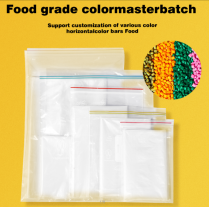Eco-friendly garden waste disposal solutions for a cleaner backyard environment
The Importance of Garden Refuse Bags in Sustainable Gardening
Gardening is not just about planting flowers and vegetables; it is also about managing waste effectively. As any gardener knows, maintaining a garden generates a substantial amount of refuse, ranging from fallen leaves and pruned branches to spent plants. One practical solution that has gained popularity among gardeners is the garden refuse bag. This article explores the importance of garden refuse bags in promoting sustainability, ensuring efficient waste management, and enhancing the overall gardening experience.
What Are Garden Refuse Bags?
Garden refuse bags, often made from durable, biodegradable materials, are designed specifically for collecting garden waste. They come in various sizes and are robust enough to handle the rigors of outdoor use. These bags are essential for keeping gardens tidy and organized, allowing gardeners to dispose of organic waste responsibly.
Sustainable Waste Management
One of the most significant advantages of using garden refuse bags is their contribution to sustainable waste management. When garden waste is collected and disposed of properly, it can be recycled or composted. Many municipalities offer organic waste collection services, utilizing refuse bags to collect green waste. This process significantly reduces the amount of waste sent to landfills, thereby lowering greenhouse gas emissions and lessening the ecological footprint of gardening activities.
Moreover, garden refuse bags made from biodegradable materials break down naturally over time, posing minimal environmental impact compared to traditional plastic bags. By opting for these eco-friendly alternatives, gardeners can promote a cleaner, greener environment.
Facilitating Composting
Garden refuse bags play a crucial role in composting efforts. Many gardeners are increasingly turning to composting as a means of recycling organic materials back into their gardens. Garden refuse bags can be used to collect leaves, grass clippings, and kitchen scraps, which can then be layered in compost bins. This not only reduces waste but also enriches the soil, providing essential nutrients to plants.
garden refuse bag

By using garden refuse bags to segregate garden waste from other types of refuse, gardeners can streamline their composting processes. Properly composted material enhances soil health, improves plant growth, and ultimately leads to a more productive garden.
Organizing the Gardening Process
Efficiency is vital in gardening, and garden refuse bags help streamline the cleanup process. During gardening activities, it is common to accumulate debris such as dead leaves, twigs, and pruned branches. Rather than letting this refuse pile up, gardeners can use refuse bags to collect waste as they work. This approach not only keeps the gardening area tidy but also allows gardeners to dispose of refuse in a timely manner.
Using garden refuse bags can also prevent pests and diseases from accumulating in the garden. Decaying plant matter can become a breeding ground for insects and pathogens, potentially harming healthy plants. By swiftly disposing of refuse in bags, gardeners can maintain a healthy environment and enhance their garden's productivity.
Promoting Responsible Gardening
The adoption of garden refuse bags fosters a culture of responsible gardening. When gardeners actively engage in waste management, they become more aware of their ecological impact. This awareness can lead to more mindful gardening practices, such as reducing chemical usage, selecting native plants, and recycling materials.
Additionally, the practice of utilizing garden refuse bags can serve as a model for others in the community. Neighbors may take notice of a gardener's responsible waste practices and be encouraged to adopt similar methods in their gardening endeavors. This ripple effect can contribute positively to the overall sustainability efforts within the community.
Conclusion
Garden refuse bags are more than just simple waste collection tools; they are essential components of sustainable gardening practices. By facilitating efficient waste management, promoting composting, organizing gardening processes, and fostering responsible gardening behaviors, these bags contribute significantly to a cleaner environment and healthier gardens. As awareness of environmental issues continues to grow, the use of garden refuse bags will likely become a standard practice, helping gardeners to maintain not only the beauty of their gardens but also the health of our planet. Embracing these simple yet effective tools is a step towards a greener future for both gardeners and the environment.
-
Stretch Film Solutions: A Comprehensive GuideNewsJun.03,2025
-
Stretch and Shrink Packaging SolutionsNewsJun.03,2025
-
Revolutionizing Packaging with Modern Wrapping SolutionsNewsJun.03,2025
-
Innovative Solutions for Silage and Window TintingNewsJun.03,2025
-
Efficient Packing with Stretch Wrap SolutionsNewsJun.03,2025
-
Effective Packaging with Stretch Wrap SolutionsNewsJun.03,2025
-
Have the freedom of customizing your custom mailers any way you want! Our dedicated packaging support will help deliver you the mailing experience you need to elevate your shipping experience to the next level! Start making a strong impression on your customers and stand out from your competitors! -
LIYA uses high quality raw materials which directly purchased from large enterprises domestic and overseas such as PetroChina, Sinopec, Sabic, Equate, ExxonMobil, Dow Chemical, Total, and Borouge, ensuring the price advantage and quality of the raw materials. -
LIYA uses high quality raw materials which directly purchased from large enterprises domestic and overseas such as PetroChina, Sinopec, Sabic, Equate, ExxonMobil, Dow Chemical, Total, and Borouge, ensuring the price advantage and quality of the raw materials.





